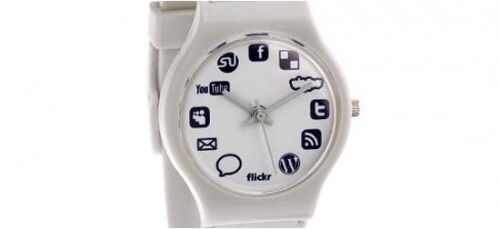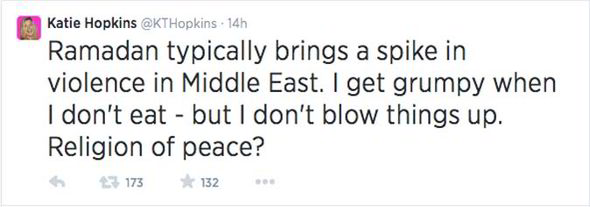 We all know and love social media. It gives us a chance to network, share opinions & passions and follow those we admire. However, as seen on any corner of the web, there will always be a darker and more unethical side within the wider picture.
We all know and love social media. It gives us a chance to network, share opinions & passions and follow those we admire. However, as seen on any corner of the web, there will always be a darker and more unethical side within the wider picture.
Ethics (n) of or relating to moral principles.
From this definition taken from the OED, we can see that the term ‘ethics’ is quite simply synonymous with morality in your behaviours (OED, 2014) and, in a sense, the ability to be virtuous. This fortnight, we are discussing ethical issues that derive from the professional use of social media, and I have chosen to focus on two examples stemming from the notion of VISIBILITY on Twitter and online forums – both of which are platforms beaming with opportunity.
1. Hiding behind a mask The flexibility of social media allows us to reside anonymously on the platform, a trick that professionals have previously misemployed (Vinjamuri, 2011). This notion is immediately interconnected with the harmfulness of cyber-bullying. However, it is easy to forget that cyber-bullying is not something that only occurs amongst school kids… The CEO of the major health food chain, Whole Foods, set up a pseudonymous profile on a Yahoo financial forum, with the sole use of slating his competitors, Wild Oats (NBC News, 2007). This case study strikes up tremendous ethical concerns, as it is not viable to monitor every single profile on every single networking site. Therefore, although this resulted in huge lawsuits, it is still a problem that may be trickling down deep into other hideaways of the web – thus, causing a continuous cycle of rivalry-driven business jeopardy from selfishly abusing the ability to hide behind anonymous profiles.
2. Careless venting Social media is a main stage for expressing personal opinions. Many use Twitter to engage with others on topics of interest, particularly since the birth of the ‘hashtag’. However, it is not usual for those in the public eye to noticeably abuse this freedom of speech… Katie Hopkins is renowned for being overly opinionated on Twitter, spreading derogatory sentiments like wildfire. Quite like the Justine Sacco case – except more frequent and uncontrollably offensive. Personally, I see this as an unethical abuse of a feature that all social media platforms offer: freedom of expression. 
Both anonymity and freedom of speech are components that we should treat with respect. So why are they being so unethically exploited on the web?
(400)
References:
NBC News, 2007. Whole Foods CEO’s anonymous online life, NBC News. [online] 12 August. Available at: <http://www.nbcnews.com/id/19718742/ns/business-us_business/t/whole-foods-ceos-anonymous-online-life/#.VQ7op0tU_wI> [Accessed 21st March 2015]
OED, 2014. Ethics. [online] Available at: <http://www.oed.com/view/Entry/64755?redirectedFrom=ethics> [Accessed 22nd March 2015]
Thistlethwaite, F., 2014. Katie Hopkins offends Islamic communities with ‘grumpy’ Ramadam tweet, The Express. [online] 30 June [Accessed 21st March 2015] – click embedded Tweet image to link!
Vinjamuri, D., 2011. Ethics and the Five Deadly Sins of Social Media, Forbes. [online] 3 November. Available at: <http://www.forbes.com/sites/davidvinjamuri/2011/11/03/ethics-and-the-5-deadly-sins-of-social-media/> [Accessed 19th March 2015]
Hi Tat,
Some very interesting points here. What I enjoyed most was the ‘careless venting’ section, where you featured a Katie Hopkins tweet. I have been actually very shocked at some of her tweets, and it did cross my mind ‘how have Twitter let her get away with it?’
It must be related to Twitter’s own ethical practice, where they have chosen to honour Katie’s right to free speech regardless of its offence. I have a feeling she is only putting herself at risk, particularly when tweeting racist comments. I can see how there are two sides to the argument – should she be allowed to outrage and insult, thanks to free speech? Or should Twitter or other governing bodies define when the line has been crossed? It is a difficult topic as Twitter gives many offensive individuals a platform, which they would never have had before.
LikeLike
Hi Andy,
Many thanks for your response!
I think in terms of allowing freedom of speech on Twitter and other social media platforms, it should be a feature that should be respected by the consumer and moderated by the provider. Twitter offers users the ability to report content (for example, if it is violent or sexually explicit), and I suspect that many groups have been personally offended by comments made by Katie Hopkins in the past. So, despite that facts that her sweeping statements often make tabloid news, I am still surprised that they are not removed by employees who work behind the scenes at Twitter. In hindsight, perhaps popular users, like Hopkins, get away which such comments due to one huge marketing ploy – either to attract more users to the platform or to engage with the ‘celebrity’ herself…
That being said, Twitter also allows users to ‘mute’ other users. So although this does not serve total justice, it is a step in the right direction.
LikeLike